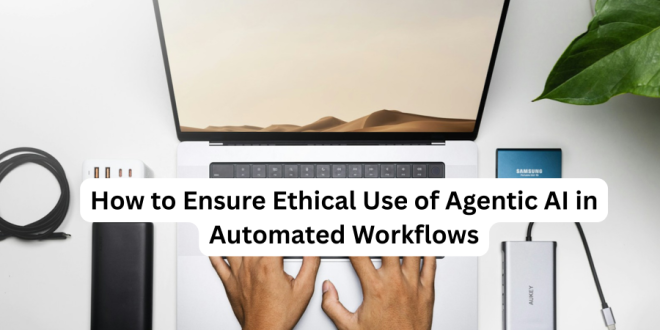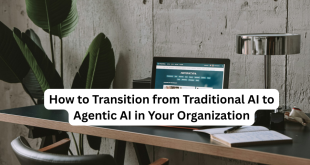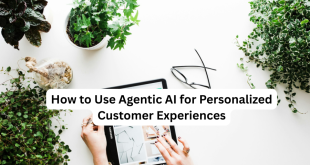As agentic AI—autonomous systems capable of making decisions and executing tasks with minimal human oversight—reshapes industries, ensuring its ethical use is paramount. From healthcare to finance, these AI agents streamline workflows, but their independence raises concerns about bias, transparency, and accountability. This guide provides a step-by-step approach to embedding ethics into agentic AI deployments, ensuring responsible automation that aligns with organizational values and societal expectations.
Why Ethical Agentic AI Matters
Agentic AI can schedule appointments, optimize supply chains, or even approve loans, but unchecked autonomy risks unintended consequences. For example, biased data could lead to unfair decisions, like denying credit to underserved groups. A 2023 study by Deloitte found that 68% of executives worry about AI ethics impacting trust. Ethical AI not only mitigates risks but also builds customer confidence and complies with emerging regulations like the EU AI Act.
Step-by-Step Guide to Ethical Agentic AI
- Define Ethical Principles for Your AI
Start by establishing clear ethical guidelines tailored to your organization’s mission and industry. These might include:
- Fairness: Ensure AI decisions don’t discriminate based on race, gender, or other protected attributes.
- Transparency: Make AI processes understandable to users and stakeholders.
- Accountability: Assign responsibility for AI outcomes.
- Privacy: Protect user data in compliance with laws like GDPR or CCPA.
Action: Create a public AI ethics charter. For example, a hospital deploying agentic AI for patient triage could prioritize equitable access to care and data privacy.
- Curate High-Quality, Unbiased Data
AI agents learn from data, and biased inputs lead to biased outputs. A 2024 Gartner report noted that 85% of AI failures stem from poor data quality.
Action:
- Audit training datasets for biases (e.g., underrepresentation of certain demographics).
- Use diverse, representative data sources. For instance, in hiring AI, include resumes from varied backgrounds.
- Implement tools like IBM’s AI Fairness 360 to detect and mitigate bias during data preparation.
- Design Transparent AI Workflows
Users and regulators demand insight into how AI makes decisions. Black-box systems erode trust, especially in high-stakes scenarios like loan approvals or medical diagnoses.
Action:
- Use explainable AI (XAI) frameworks to clarify decision logic. Tools like LIME or SHAP can break down complex models.
- Document workflows, detailing how AI agents prioritize tasks or allocate resources.
- Share summaries with stakeholders. For example, a logistics company could publish how its AI optimizes delivery routes without compromising driver safety.
- Implement Robust Testing and Monitoring
Ethical AI requires continuous evaluation to catch issues like drift (when AI performance degrades over time) or unintended consequences.
Action:
- Conduct pre-deployment stress tests to simulate edge cases. For instance, test an AI financial advisor with extreme market conditions.
- Set up real-time monitoring with dashboards to track fairness metrics, error rates, and user feedback.
- Schedule regular audits (e.g., quarterly) to ensure compliance with ethical standards.
- Establish Human Oversight Mechanisms
While agentic AI operates autonomously, human-in-the-loop (HITL) systems ensure accountability. This is critical in sensitive applications like criminal justice or healthcare.
Action:
- Define escalation protocols for AI decisions. For example, an AI denying insurance claims could flag cases for human review if confidence scores are low.
- Train staff to interpret AI outputs and intervene when necessary.
- Create feedback loops where user complaints refine AI behavior.
- Engage Stakeholders and Communicate Proactively
Ethical AI thrives on trust, which requires involving employees, customers, and regulators early and often.
Action:
- Host workshops to educate teams on AI’s role and ethical guardrails.
- Publish regular reports on AI performance and ethical compliance, similar to sustainability reports.
- Invite external audits by third parties to validate your approach, boosting credibility.
- Stay Compliant with Evolving Regulations
Global AI regulations are tightening. The EU AI Act, effective 2025, classifies high-risk AI systems and mandates ethical compliance, with fines up to €35 million for violations.
Action:
- Assign a compliance officer to track regulations in your region and industry.
- Use compliance tools like OneTrust’s AI Governance to automate risk assessments.
- Update AI systems to align with new laws, such as mandatory bias reporting.
Real-World Example: Ethical Agentic AI in Action
Consider a retail company using agentic AI to automate inventory restocking. To ensure ethics:
- They audit supplier data to avoid favoring certain vendors unfairly.
- They use explainable models to show why specific products are prioritized.
- They monitor stock decisions to prevent overstocking luxury items at the expense of essentials.
- They involve store managers to review AI suggestions during peak seasons.
- They publish a yearly AI ethics report, building trust with customers.
Tools to Support Ethical Agentic AI
- Data Bias Detection: Fairlearn, AI Fairness 360
- Explainability: LIME, SHAP, Google’s What-If Tool
- Monitoring: Prometheus, Grafana
- Compliance: OneTrust, IBM Watson Governance
Final Thoughts
Ensuring ethical use of agentic AI in automated workflows is not a one-time task but an ongoing commitment. By defining clear principles, curating unbiased data, designing transparent systems, and maintaining human oversight, organizations can harness AI’s power responsibly. As agentic AI grows—Gartner predicts 15% of work decisions will be autonomous by 2028—ethical practices will differentiate leaders from laggards, fostering trust and innovation.
Ready to make your AI workflows ethical? Start by drafting your AI ethics charter today and share it with your team. For more insights, explore resources like Gartner’s AI Ethics Framework or the EU AI Act guidelines.
 UBUCH ubuch | Honest Tech Reviews & Tutorials for Everyone
UBUCH ubuch | Honest Tech Reviews & Tutorials for Everyone




